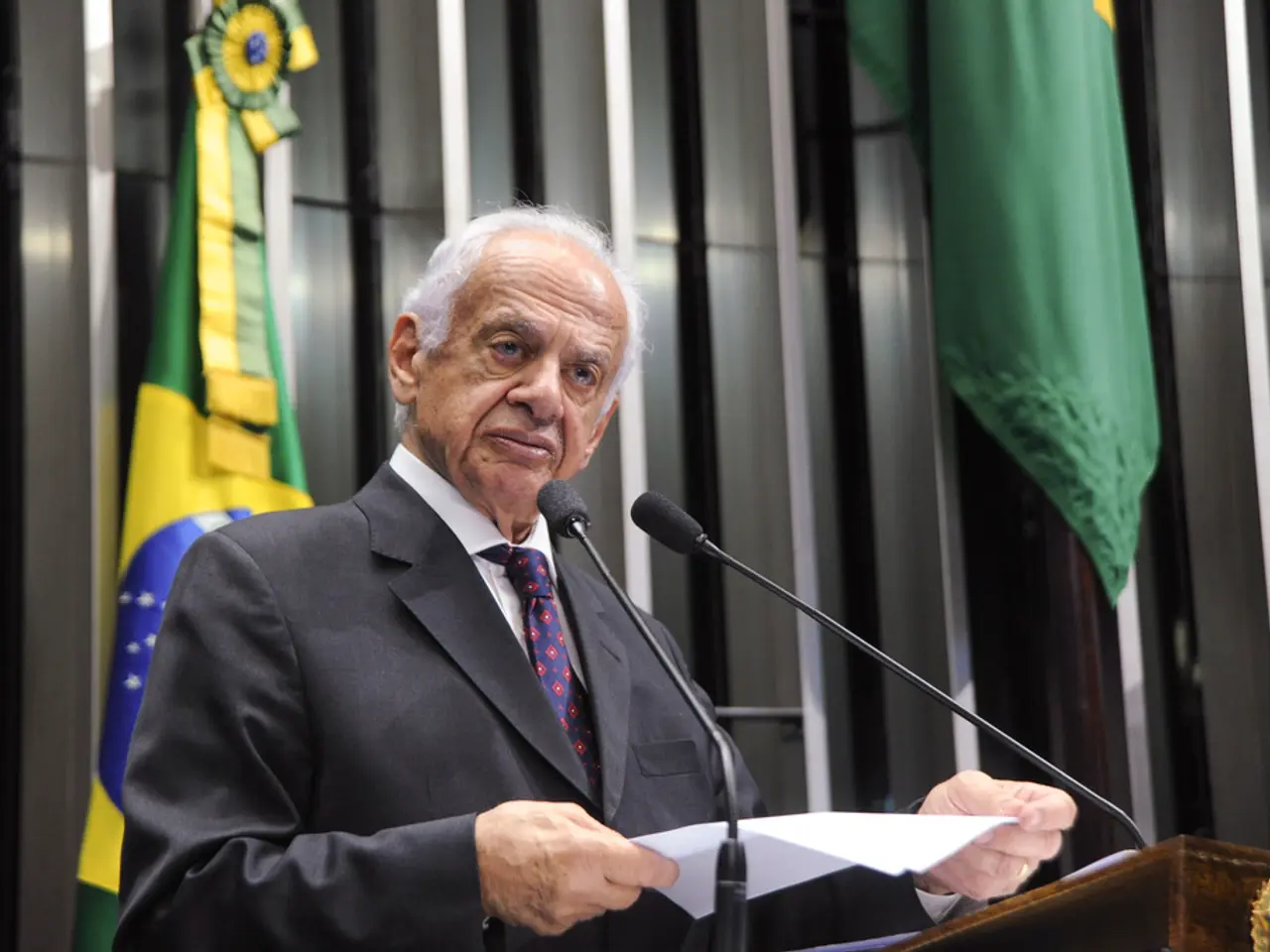Scrutiny mounts over Kenya Kwanza's financial aid distribution: Is it promoting empowerment or political leanings?
The legitimacy and transparency of government empowerment drives in Kenya have come under scrutiny, with critics accusing the government of using public funds for political show rather than meaningful economic empowerment.
Senator Joe Nyutu has raised concerns over the lack of transparency in the government's empowerment drives, questioning the legitimacy of the money being distributed. He suggests that the cash could be routed through confidential allocations under the Interior Ministry, shielded from audits under national security. Nyutu also claims that the empowerment tours are political campaigns disguised as development.
In response, Senator Samson Cherargei defends the empowerment initiative as part of Kenya's long-standing Harambee tradition. He argues that there's no law requiring MPs to account for personal contributions to the empowerment initiatives. Cherargei states that the money for the empowerment initiatives comes from MPs' personal networks, friends, colleagues, and WhatsApp groups that include top leaders.
Cherargei justifies the cash donations for the empowerment initiatives as a response to the ban on political fundraising in churches. However, millions are handed out in cash at public events during the government's empowerment drives with no traceable budgetary allocation.
The debate between Senators Joe Nyutu and Samson Cherargei has become personal, with Senator Cherargei being criticized for likening dissenting voices to 'mama mbogas' and 'boda boda riders.'
Meanwhile, pro-government leaders defend these efforts as part of Kenyan cultural practices that complement development projects and support citizens. Cherargei mentions Farouk Kibet as one of the chief strategists for the institutionalisation of the empowerment initiative, with plans underway to formalise these initiatives.
However, the controversy also involves fraudulent schemes impersonating government empowerment programs. Notably, the fake "Inua Jamii Foundation Empowerment" scam has misled vulnerable Kenyans with false promises of aid and required bogus fees. The government has repeatedly warned the public against such scams, emphasizing that official communication only comes through verified government channels and calling for vigilance and reporting of suspicious activities.
Thus, the controversy broadly includes allegations of politicization and misuse of public funds, challenges in transparency and accountability, and risks of impersonation and fraudulent scams targeting poor citizens. The legitimacy of empowerment funds and transparency in their administration remain contested, fueling skepticism about the actual benefits versus political objectives of these initiatives in Kenya.
- Senator Joe Nyutu's concerns over the government's empowerment drives extend to the possibility of the funds being allocated in policy-and-legislation under the Interior Ministry.
- During the debate, Senator Joe Nyutu accused the empowerment tours of being political campaigns disguised as development, while the general news is filled with discussions about the transparency and legitimacy of these initiatives.
- The health of the nation may be at risk if the money meant for empowerment drives is indeed used for political show, as critics argue, undermining the intended impact on meaningful economic growth for Kenyans.






